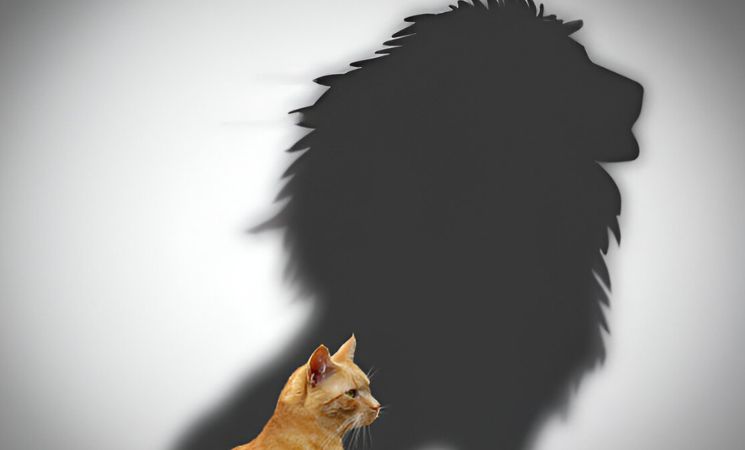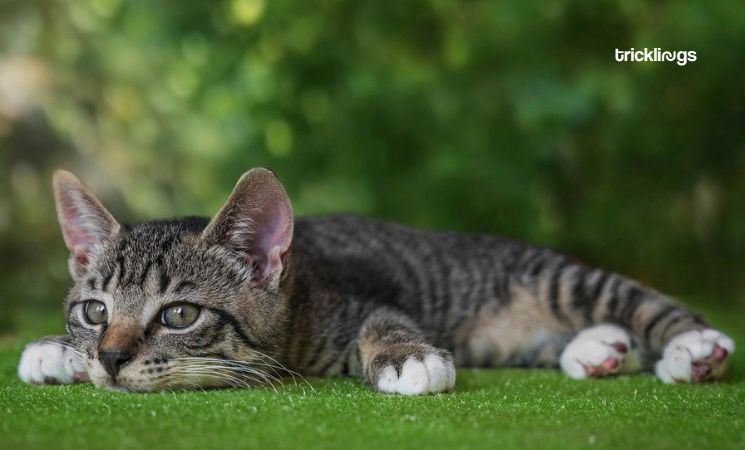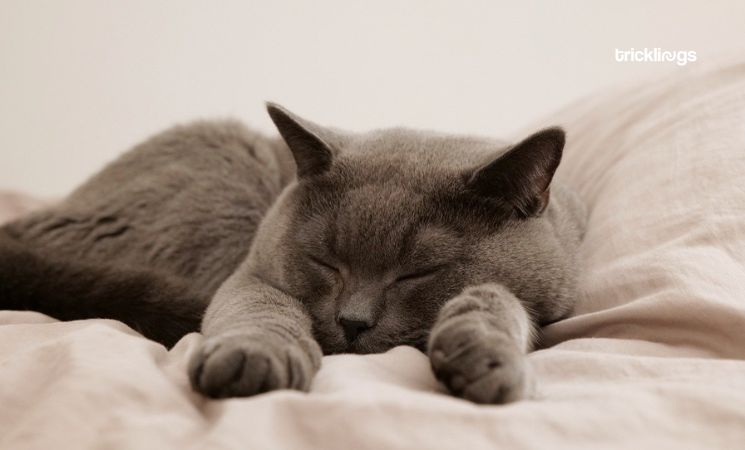For anyone who has ever owned a cat, one thing is clear: cats love to sleep. They seem to spend most of their day curled up in a cozy spot, dozing off. But why exactly do cats sleep so much? Is there a reason for their constant napping, or are they just lazy?
Recent studies and expert insights reveal that cats can spend up to 75% of their lives sleeping, a staggering figure that reflects not just laziness, but something much deeper rooted in their biology and evolutionary history.
Cats can sleep anywhere from 12 to 16 hours a day, with some even reaching up to 20 hours, especially as they age.
This incredible amount of sleep isn’t just because they enjoy being lazy; it’s actually an evolutionary trait passed down from their wild ancestors.
Wildcats, like lions and tigers, need to conserve energy for hunting, which involves short bursts of intense activity followed by long periods of rest. Domestic cats, despite not needing to hunt for food, have retained these natural instincts.

Feline behaviorist Dr. Sarah Ellis notes, “Cats are crepuscular animals, meaning they are most active during dawn and dusk. Their sleep schedules are deeply rooted in their need to be alert during prime hunting times.”
https://www.drsarahellis.co.uk/
For house cats, this might explain why they seem to nap all day and come alive in the early morning or evening, zooming around the house when you’re just waking up or winding down.
Kittens and older cats tend to sleep even more. Kittens need plenty of rest to support their rapid growth, while senior cats may need extra sleep to recover from the wear and tear of aging. But even for adult cats, sleep is essential.
During rest, their bodies heal, and their minds process experiences from their waking hours. Much like humans, sleep plays a crucial role in both physical and mental well-being for cats.
Not all of this sleep is deep, though. Cats alternate between light naps and deep, restorative sleep. In light sleep, which makes up about three-quarters of their total sleep time, cats remain alert to their surroundings.
You may have noticed your cat’s ears twitching or their eyes partially open while they nap—that’s a sign they’re still keeping track of what’s going on around them. This light sleep allows them to react quickly to any potential threats.

While many believe cats are simply hardwired to be sleepy creatures, environmental factors also play a role.
Cats living in safe, comfortable homes tend to sleep more because they feel secure. In contrast, feral cats or those in stressful environments often sleep less, staying on alert for dangers. House cats with enriching environments, such as toys, scratching posts, and high perches, tend to balance their rest with activity during their waking hours.
Despite their long hours of rest, when awake, cats can be extremely energetic, as seen in their bursts of play or hunting behaviors.
They mimic the behavior of their wild relatives, conserving energy for brief but intense periods of activity.
Ultimately, cats sleep so much because their biology demands it. For them, sleep is a vital part of their survival mechanism, even if they no longer need to hunt for food. As Dr. Ellis points out, “It’s their way of staying sharp, fit, and ready, even if their ‘hunting’ today involves chasing a toy mouse instead of real prey.”
For cat owners, understanding these sleep patterns can offer a deeper connection with their pets. Providing stimulating environments when cats are awake, while also respecting their need for rest, can create a balanced, healthy lifestyle for these mysterious and beloved companions.













